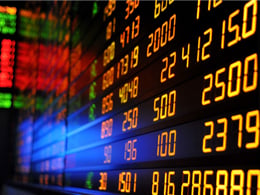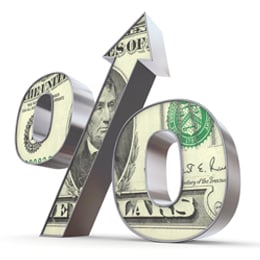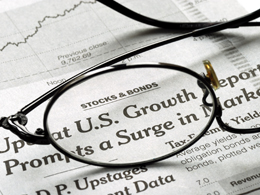After 15-percent pullbacks in both the first quarter and the middle of last year, the market is moving up toward new highs. The Dow just ticked above 18,000 for the first time since last July, and the S&P 500 is getting close to the 2,100 level, last seen in December. All-time highs are 18,351.36 for the Dow and 2,134.72 for the S&P 500, so we are getting close.















